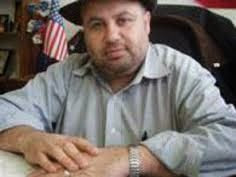Interview with Arab- American community leader Imad Hamad On Dearborn elections and the Arab American community- False claims hamper unity, depress turnout

Interview with Arab- American community leader Imad Hamad On Dearborn elections and the Arab American community False claims hamper unity, depress turnout Elections are often times of high drama. The Michigan elections, particularly the Dearborn mayoral election, produced heat and noise that carried on after the elections were over and the results declared. To shed light on that phenomenon, I interviewed Mr. Imad Hamad, longtime community leader and activist and Executive Director of the American Human Rights Council. Below are edited excerpts from the interview: Q: What is your assessment of the recent elections in the Detroit area? I.H.: It was very good. A lot of excitement about new candidates. A lot of energy from the young volunteers in the different campaigns. It was gratifying to see more Arab and Muslim Americans running for office. As a community we are moving forward in important ways. We are breaking barriers. Despite all t...




